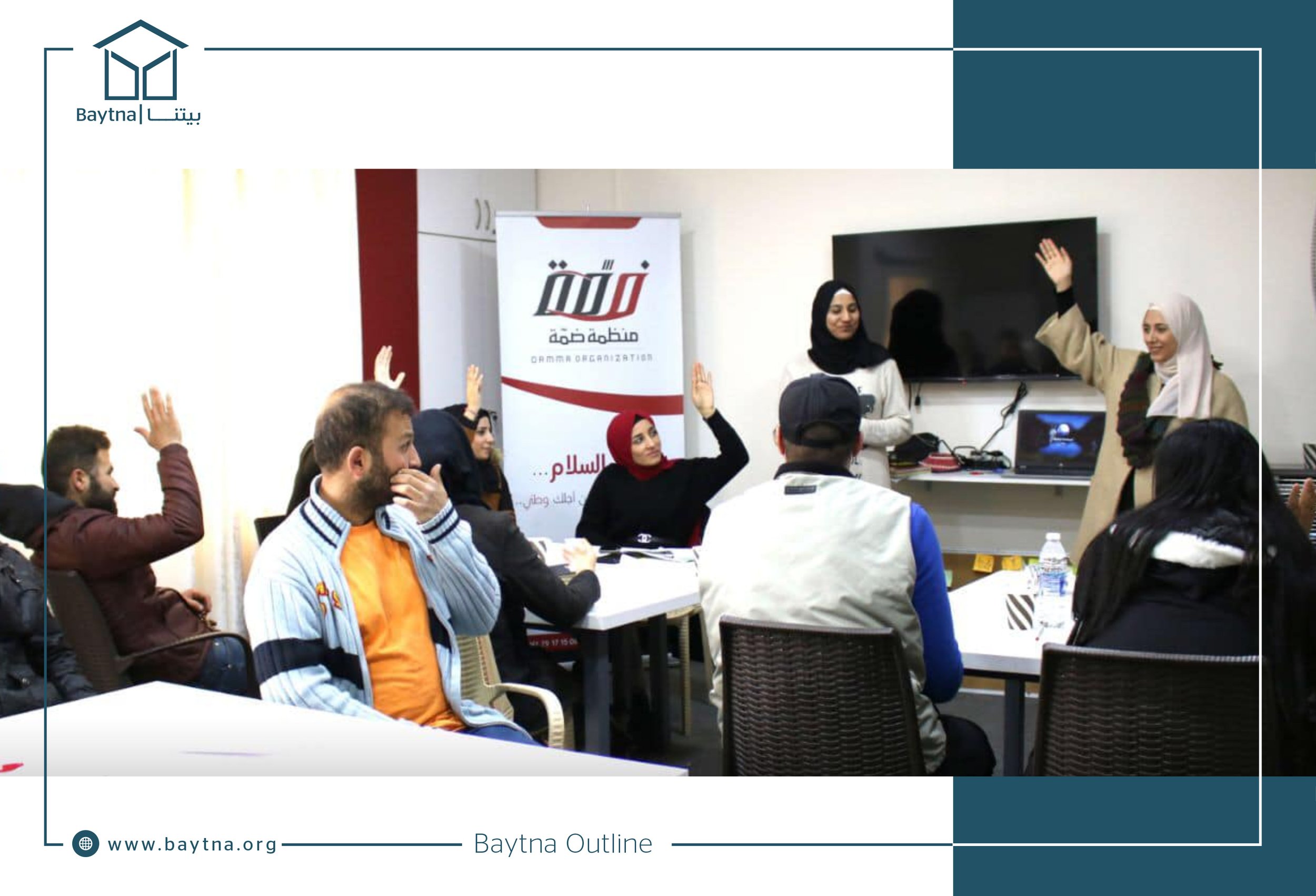Investing in Syrian Youth and Civil Society, with Baytna Outline in Lebanon
Together-4 Initiative in Bekaa, Lebanon.
December 22, 2021 - Syrian youth face many challenges in their countries of exile, including the difficulty of having their voices heard or taken seriously. Civil society organizations have worked for the social inclusion of young refugees, by offering training courses and educational activities to help facilitate their access to formal education, self-development, and independence.
Baytna’s Outline program has evaluated the unique needs of young refugees in Lebanon, supporting local projects and developing the sustainable development of newly formed civil teams. In the Bekaa Valley, Tripoli, and Arsal, with a large community of Syrian refugees and refugee camps, Baytna worked with 14 groups to facilitate the social inclusion of youth refugees.
The program has facilitated working groups for youth and women, and enabled them to recognize and express their achievements in different contexts, increase their self-esteem and their motivation to impact their community, and keeping refugee youth engaged in community initiatives and advocacy campaigns.
Together We Build Initiative in Bekaa, Lebanon
Muzna, Baytna Outline’s Field Coordinator in Bekaa and Arsal, considers Baytna Outline to be a unique program: “It enriches young people, giving them a safe and participatory space to communicate and express ideas, beliefs, and opinions practically and efficiently. It gave them an opportunity to access trainings that other organizations in the area do not offer. For the first time, the role of Syrian youth in Lebanon is being considered.”
As a refugee herself since 2013, an activist, journalist, and community entrepreneur who co-founded several initiatives and teams in Lebanon, Muzna places great importance to self-development: “Today, there is a fundamental need to build and develop ourselves, because we are responsible for our freedom, for thinking of how to create equality of opportunity, and for giving ourselves the space to improve our situation."
Projects supervisors ensure the trainings and activities are held up to Baytna standards, with qualified trainers, and that they provide physical safe spaces for refugees. Recent economic circumstances in Lebanon, including electricity cuts and transportation difficulties, have temporarily moved these trainings online at feasible times.
So far, more than 70 Syrian young women and men have been trained through the program in Tripoli, forming initiatives and teams under the supervision and support of Baytna. Six of them have received small grants from Baytna for awareness-raising projects on democracy, elections processes, governance, and peace building. Some groups have worked on advocacy campaigns to raise the issues of the Syrian refugees in Lebanon. Participants were also trained on coalition building, networking, and learned about political modules, and connecting with the relevant stakeholders in the future.
Nasma Initiative in Tripoli, Lebanon.
In Triopli, Baytna Outline is currently working with 50 young refugees (including a number of illiterate young women, to encourage them to engage in political affairs) in a physical setting, under the supervision of Baytna Field Coordinator Nour, who has studied Radio and Television and worked with special needs children. The trainings focus on how young refugees can become more involved in community affairs, and how they can strengthen their roles and their ability to influence.
“These projects have a real, positive effect on young people. After the Elections training, some participants told me it was the first time they had a voting experience, that they were able to freely choose their preferred candidate in a safe environment without pressure. Even with this pretend election activity, it warmed my heart to see such enthusiasm for a democratic exercise that many people in the world take for granted,” said Nour.
Projects such as these, and others that Baytna supports in areas where Syrian civil society is active, confirm that continued communications and awareness raising are a necessary part of supporting the next generation of Syrian youth on the concepts and the tools of civil society. This remains challenging, as it requires creating a safe space for the participants so that they can express themselves freely, and formulate their needs and requests to institutions capable of helping them become active members in their host communities. It is also rewarding, as the nucleus of a healthy society for the future Syria continues to develop and bloom.




